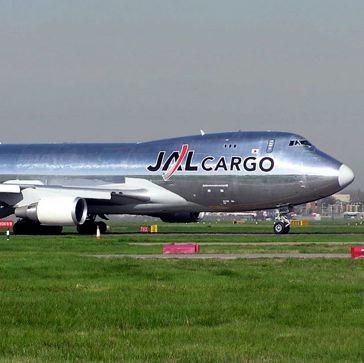 An 8.9 earthquake off the coast of Japan Friday morning spawned a massive tsunami that slammed the island nation, killing hundreds and shutting down airports and other transit systems.
An 8.9 earthquake off the coast of Japan Friday morning spawned a massive tsunami that slammed the island nation, killing hundreds and shutting down airports and other transit systems.
The quake was the fifth largest in magnitude in recorded history and the largest quake to hit Japan since the country started keeping records 140 years ago, reported the U.S. Geological Survey.
Around 410 people have been confirmed dead so far.
Despite decades of preparation by the Japanese, the country’s transportation infrastructure has taken a major hit from the earthquake that struck 80 miles offshore.
In Tokyo, the damage was minimal but subways, buses and trains shut down, forcing the city’s workforce to return home by foot.
Tokyo’s main international airport Narita has been almost completely shut down with most flights being redirected to other airports. The railways and highways to and from the airport are also not operating.
Tokyo International Airport (Haneda Airport) has also almost completely shut down. It is estimated that there are around 13,000 travelers stranded at Narita Airport and 10,000 travelers stranded at Tokyo International.
Sendai airport has been reported to be partially underwater with employees taking refuge on the airport’s roof.
Learn more about dealing with Natural Disasters when traveling here.
 The devastation has led to a wave of flight cancellations to and from the country.
The devastation has led to a wave of flight cancellations to and from the country.
Delta Air Lines, which operates the bulk of U.S. flights to Japan, canceled 29 flights. Meanwhile, United Continental diverted seven United flights and two Continental flights to Narita. American Airlines has canceled all six of its Japan flights for today.
Most airlines are waiving change fees in light of the earthquake.
American Airlines says it will waive reissue charges for flights bought on or before March 11 for travel from March 11 to 18. Cathay Pacific is waiving rebooking and rerouting fees for tickets issued on or before March 11 for flights from March 11 to 16. And Delta Air Lines is waiving change fees for flights between March 11 to 15.
As the airlines scramble to reposition their fleet, even more transportation uncertainty faces Japanese supply chain operations and their ability to import and export goods.
Cargo shippers are reporting that as a precaution major Japanese ports have been closed, a major blow to the countries export-driven economy. The shutdowns could impact the global supply chain as Japanese exports such as automobiles, machinery and manufactured goods are held in Japanese ports.
Across the Pacific, other ports suspended operations as well. The Port of Los Angeles announced that it would closed for the day as a precaution against tsunami waves.
By Adriana Padilla for PeterGreenberg.com.
Related Link: Yahoo, Reuters, Los Angeles Times, New York Times, Los Angeles Times
UPDATE: Get the latest on the situation in Japan with these more recent articles:
- Japan Earthquake News: Travel Tips For Helping Americans Evacuate
- Travel Advice On Dealing With The Japan Earthquake & Tsunami
- Japan Earthquake Damages Tourism Worldwide
- Flights Rerouted As Japanese Radiation Leaks Affect Airspace
- Japan Earthquake Update: Travel Advisory Issued
Related Links on PeterGreenberg.com:
- Chile Earthquake Sparks Minor Tsunami But Major Damage
- Post-Tsunami Recovery Efforts Begin In Samoan Islands, American Samoa
- Indonesian Earthquake Sparks Deadly Tsunami
- Volunteer Vacations Disaster Assistance: Haiti, Chile, China
- Natural Disasters section
- Travel Safety & Security section
- Japan Travel section












